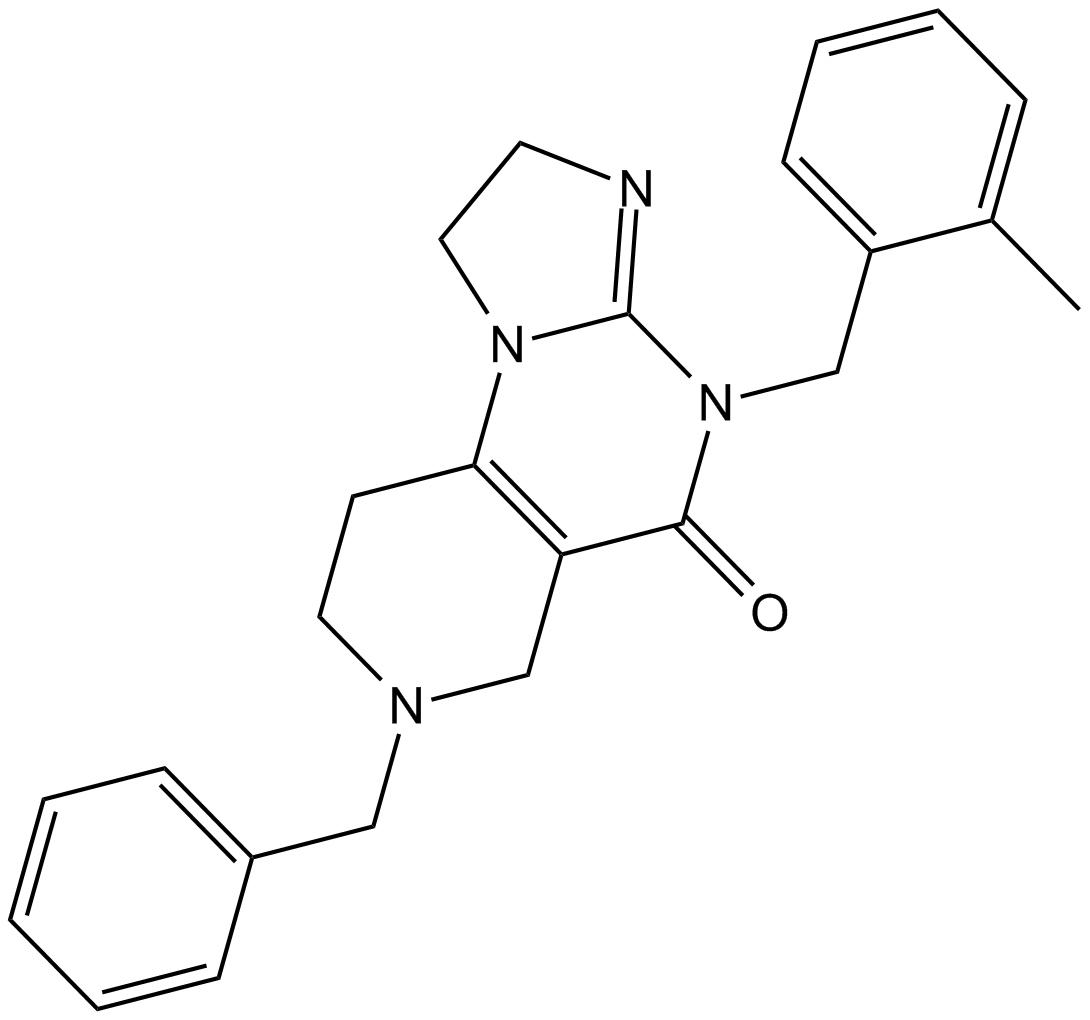ONC201 (Synonyms: TIC10) |
| Catalog No.GC11711 |
ONC201 (ONC-201) is a potent, orally active, and stable tumor necrosis factor-related apoptosis-inducing ligand (TRAIL) inducer which acts by inhibiting Akt and ERK, consequently activating Foxo3a and significantly inducing cell surface TRAIL. ONC201 can cross the blood-brain barrier.
Products are for research use only. Not for human use. We do not sell to patients.

Cas No.: 1616632-77-9
Sample solution is provided at 25 µL, 10mM.
ONC201 is a first-in-class small chemical that activates p53-independent apoptosis with IC50 value less than 2.5 μM in lymphoma and leukemia cells. [1]
ONC201 induced apoptosis in stem and progenitor AML cells and abolish the engraftment of leukemic stem cells in mice while sparing normal bone marrow cells. ONC201 induced changes in gene expression similar to those induced by the unfolded protein response (UPR) and integrated stress responses (ISRs). ONC201-treated hematopoietic cells promoted apoptosis and did not depend on increased phosphorylation of eIF2a. ONC201 also forbid mammalian target of rapamycin complex 1 (mTORC1) signaling, likely through ATF4-mediated induction of the mTORC1 inhibitor DDIT4. Overexpression of BCL-2 protected against ONC201-induced apoptosis, and the combination of ONC201 and the BCL-2 antagonist ABT-199 synergistically increased apoptosis. [1]
In solid tumors, ONC201 caused late-stage induction of tumor necrosis factor–related apoptosis-inducing ligand (TRAIL) death receptor 5 (DR5) and promoted the transcription of TRAIL gene. ONC201 has substantial antitumor activity in preclinical models in various advanced solid tumors with infrequent oral dosing and without toxicity in normal cells in culture and in vivo [2]. Preclinical studies demonstrated broad synergism of ONC201 with established anticancer therapies, including the depletion of colorectal cancer stem cells [3].
ONC201 induced p53-independent apoptosis and cell cycle arrest in acute myeloid leukemia (AML) and mantle cell lymphoma (MCL) samples from patients; these embraced samples from patients with genetic abnormalities associated with poor prognosis or cells that had produced resistance to the nongenotoxic drugs ibrutinib and bortezomib. [1]
References:
1.ATF4 induction through an atypical integrated stress response to ONC201 triggers p53-independent apoptosis in hematological malignancies.Sci Signal. 2016 Feb 16;9(415):ra17.
2.Dual in activation of Akt and ERK by TIC10 signals Foxo3a nuclear translocation, TRAIL gene induction, and potent antitumor effects. Sci. Transl. Med. 5, 171ra117 (2013).
3.Genetic and pharmacological screens converge in identifying FLIP, BCL2 and IAP proteins as key regulators of sensitivity to the TRAIL-inducing anti-cancer agent ONC201/TIC10. Cancer Res. 75, 1668–1674 (2015).
Average Rating: 5 (Based on Reviews and 21 reference(s) in Google Scholar.)
GLPBIO products are for RESEARCH USE ONLY. Please make sure your review or question is research based.
Required fields are marked with *




















